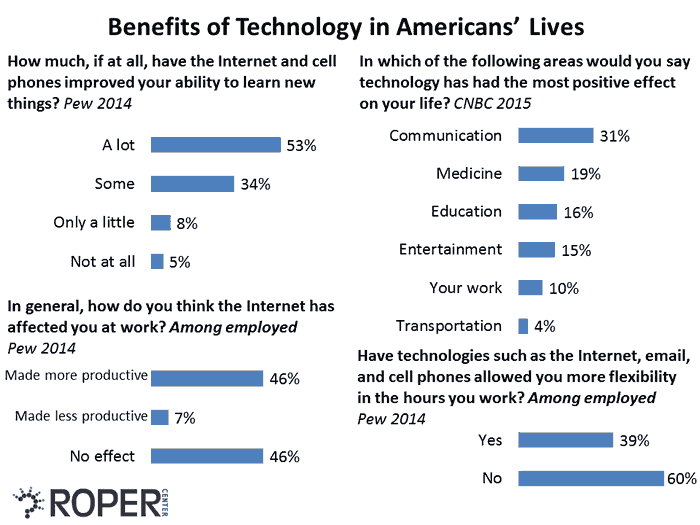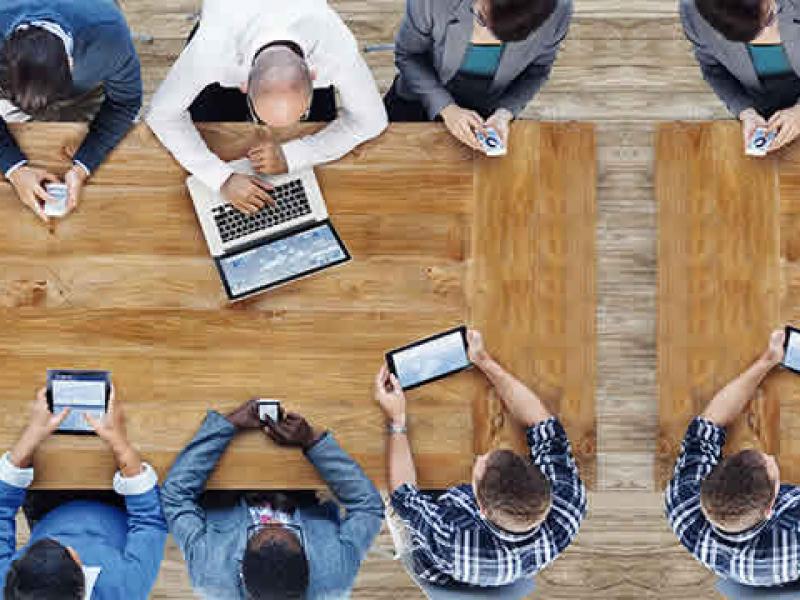What can polling tell us about Americans' relationship with digital technology? An overview from the Roper Center for Public Opinion Research Archives:
The 1990s: Americans' growing digital literacy
Polling about the internet goes back to the mid-eighties, but few Americans at that time showed much understanding of what the term "internet" meant. There were gradual increases in understanding until in 1999 a plurality said they had a clear understanding of the term, and as many said they had a general sense of what it meant as said they had little understanding. 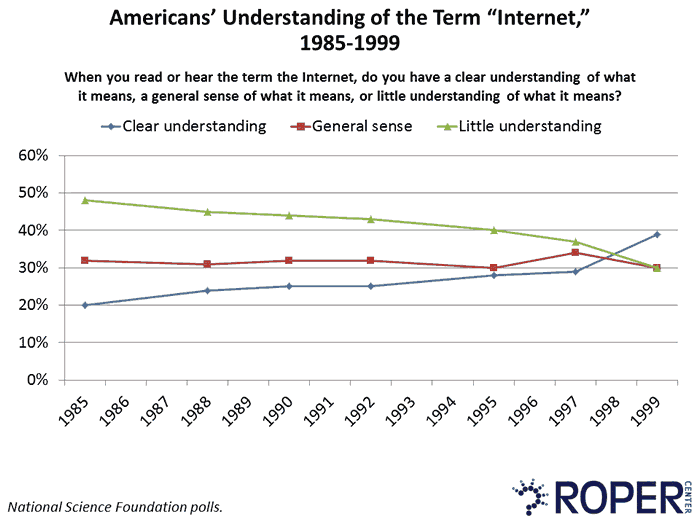 Self-reported understanding of other terms related to digital literacy increased much more rapidly. Between 1994 and 1999, there was a steep rise in the proportion of Americans who said they had a reasonable understanding of terms including "hardware," "email," and "surfing." Majorities in 1999 were also familiar with the terms "website," "World Wide Web," and "download," though "broadband" and "e-commerce" were still unfamiliar to a majority.
Self-reported understanding of other terms related to digital literacy increased much more rapidly. Between 1994 and 1999, there was a steep rise in the proportion of Americans who said they had a reasonable understanding of terms including "hardware," "email," and "surfing." Majorities in 1999 were also familiar with the terms "website," "World Wide Web," and "download," though "broadband" and "e-commerce" were still unfamiliar to a majority. 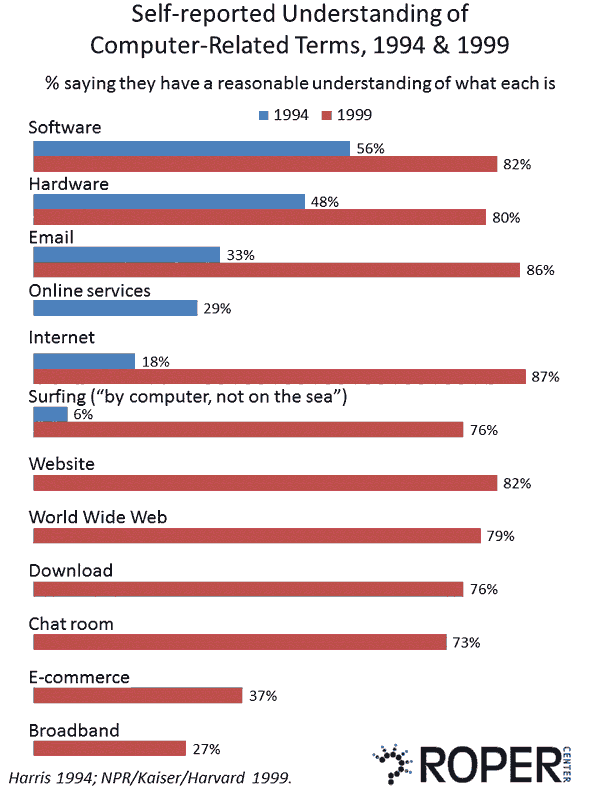
Adoption of technology
Just 15% of Americans had a personal computer in their home in 1984, a proportion that more than tripled by 1998, and reached in 77% in 2008. 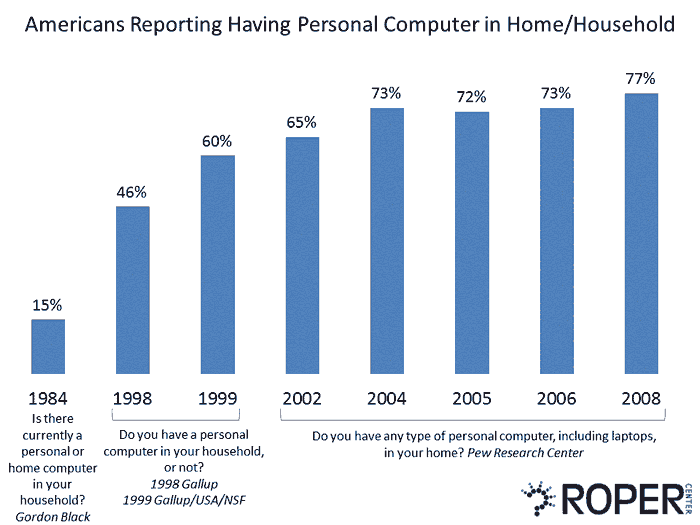 Smartphone technology has shown even more accelerated rates of adoption, with the number of Americans reporting owning a smartphone more than doubling in just three years. In 2014, the Pew Research Center found that 15% of smartphone users have limited access to get online in ways other than via their cell phone. Only 4% of white smartphone owners are "smartphone-dependent" for internet access, while 12% of African Americans and 13% of Latinos are.
Smartphone technology has shown even more accelerated rates of adoption, with the number of Americans reporting owning a smartphone more than doubling in just three years. In 2014, the Pew Research Center found that 15% of smartphone users have limited access to get online in ways other than via their cell phone. Only 4% of white smartphone owners are "smartphone-dependent" for internet access, while 12% of African Americans and 13% of Latinos are. 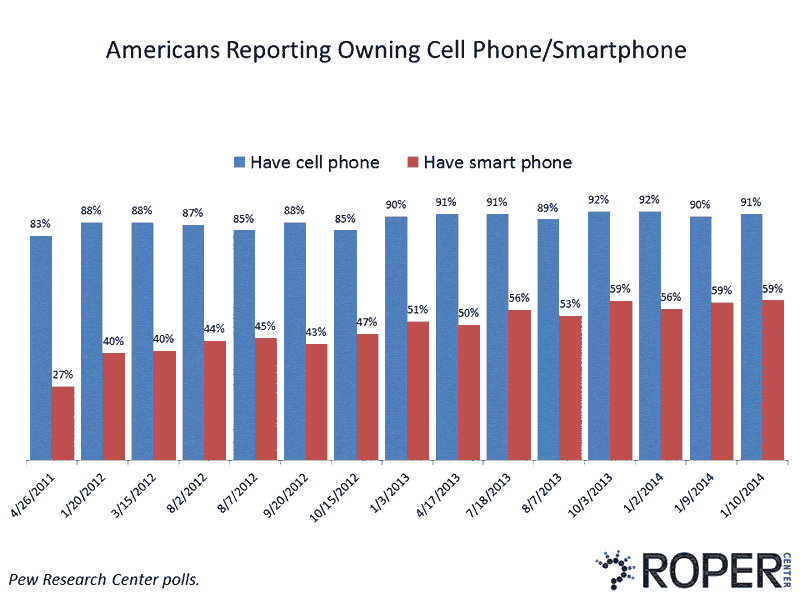 Smartphone ownership is also much higher among younger Americans. In a December 2013 Gallup poll, 88% of people aged 18-29 said they had a smartphone, compared to 26% of those 65 and older. In fact, younger people were more likely than seniors to have every device or service mentioned, with the sole exception of the oldest technology on the list, the desktop computer.
Smartphone ownership is also much higher among younger Americans. In a December 2013 Gallup poll, 88% of people aged 18-29 said they had a smartphone, compared to 26% of those 65 and older. In fact, younger people were more likely than seniors to have every device or service mentioned, with the sole exception of the oldest technology on the list, the desktop computer. 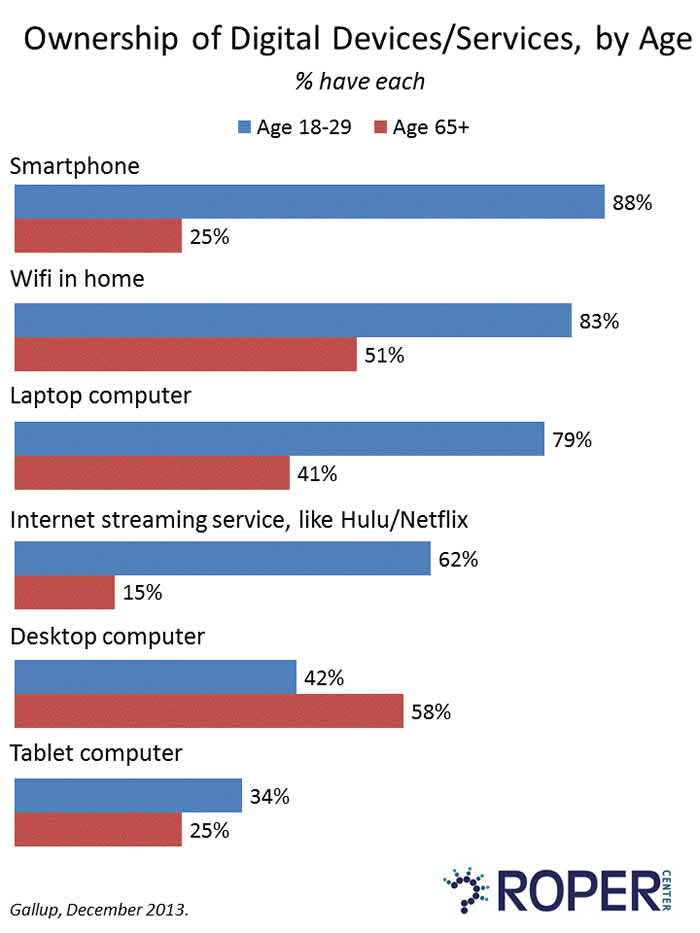
Digital technology use
Nearly seven in ten Americans use the internet several times a day, while just over half send text messages that frequently. Fewer than one in ten Americans say they use the internet only a few times a month or less frequently. App use on phones or tablets is much lower. 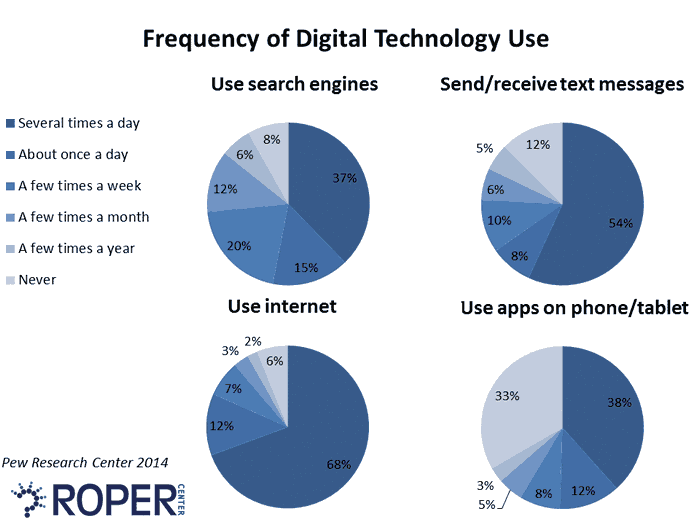 The activities that the most Americans say they do regularly online are checking email, keeping up with friends, and streaming music or video, with roughly seven in ten saying they do each. On the other end of the scale, the Pew Research found in 2015 that fairly small proportions of the public had used the internet to interact with government over the last year by renewing a drivers' license or registration (18%), learning about or registering for government benefits (13%), paying fines, such as parking tickets (11%) or reporting a problem (2%).
The activities that the most Americans say they do regularly online are checking email, keeping up with friends, and streaming music or video, with roughly seven in ten saying they do each. On the other end of the scale, the Pew Research found in 2015 that fairly small proportions of the public had used the internet to interact with government over the last year by renewing a drivers' license or registration (18%), learning about or registering for government benefits (13%), paying fines, such as parking tickets (11%) or reporting a problem (2%). 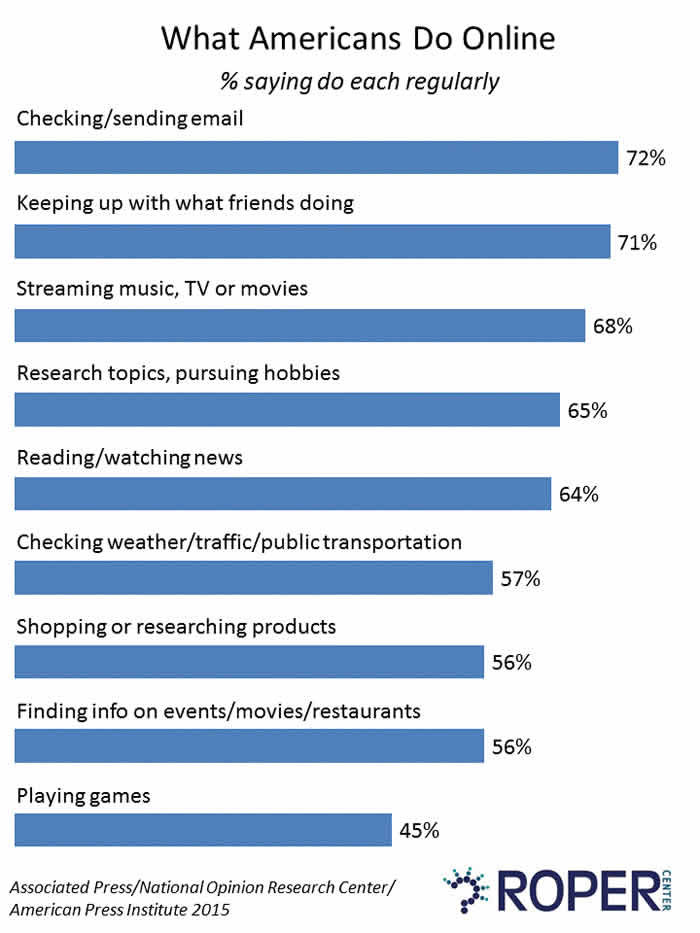
Online education
The public sees value for the money as the major advantage to online education, but many still believe that traditional classroom education is better in terms of providing quality instruction, a degree that employers view positively, and rigorous and trustworthy testing. But a majority believe that an employer is very or somewhat likely to hire someone with a online degree over someone with a traditional degree. A substantial share of the public has used some sort of paid educational course or service online in the past year. 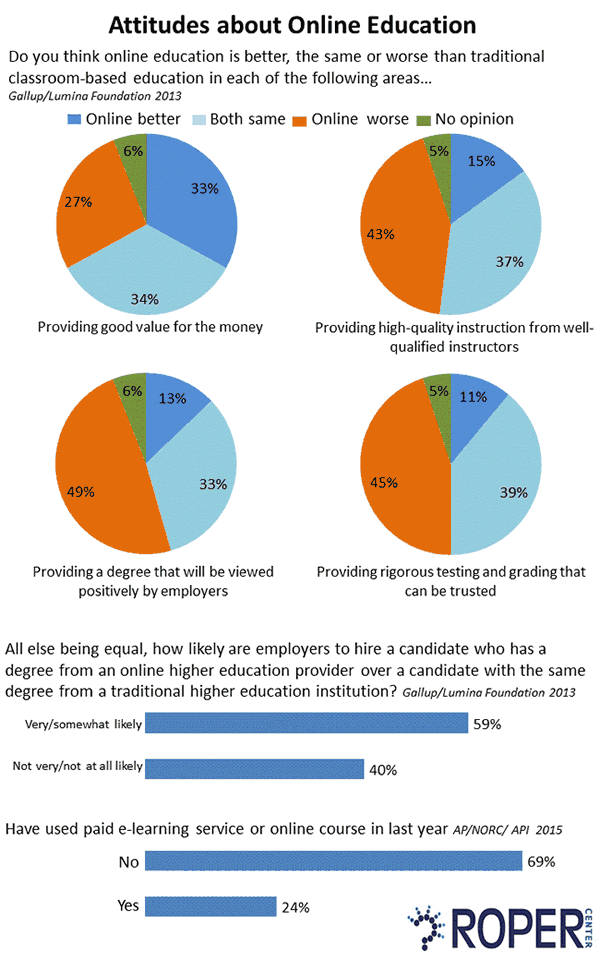
Benefits of changing technology
A majority of Americans see the Internet and cell phone as having improved their ability to learn new things. When asked to chose the areas in which technology has had the most positive effect on their lives, a plurality of the public in 2015 chose communications, indicating that when thinking about technologies, digital tech is likely to be at the forefront of people's minds. Just under half of employed Americans believe the Internet has made them more productive, and a lower proportion say new technologies have made their work hours more flexible. 